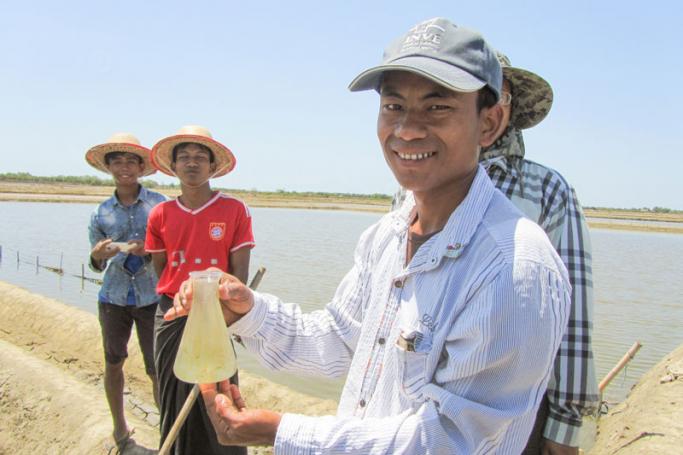The Department of Fisheries of the Ministry of Agriculture, Livestock and Irrigation hosted the official launch of the Myanmar Sustainable Aquaculture Programme (MYSAP) in Naypyidaw today.
Over the course of five years, MYSAP will support the sustainable development of aquaculture in Myanmar, with 22.25 million EUR (36.70 billion MMK) in funding from the European Union and the German government. The programme aims to help improving nutrition standards and food security, and to create livelihoods.
“Cyclone Nargis in 2008 and a lack of preservation of fishery resources in Myanmar have led to a decline in aquaculture production. Therefore, the Department of Fisheries is taking action”, said U Khin Maung Maw, Director General of the Department of Fisheries.
"MYSAP will benefit children, nutrition, and many other Sustainable Development Goals, jobs, investments, trade, the environment and government capacity," said Kristian Schmidt, Ambassador of the European Union to Myanmar emphasising how MYSAP will contribute to realising multiple development goals.
On occasion of the official launch, MYSAP initiated the consultation and drafting process of the National Aquaculture Development Plan (NADP), a document setting out objectives with programmes, activities, resources and a schedule to achieve them. “Neighbouring countries, Thailand, Bangladesh, Vietnam and Indonesia, are working with national aquaculture development plans and they are marking high fish production and exports. We understand that there is a strong need for a proper aquaculture development plan in Myanmar," said Director General U Khin Maung Maw.
“Therefore, the Department of Fisheries is facilitating the consultation process to draft an NADP that is in line with the 12-point national economic policy announced in 2016. Our goals are food security, increased export and the expansion of rural employment opportunities, granting fish farmers better access to credit, increasing private investment and competition in the fish sector”, the Director General explained, illustrating the connection of aquaculture to other policy areas.
The first NADP dialogue took place among government agencies and stakeholders from civil society and the private sector. They all provided their inputs on how to improve aquaculture value chains and environmental sustainability, policy, governance and institutional support, post-harvest management and human nutrition, as well as education, social inclusiveness and gender equality.
You are viewing the old site.
Please update your bookmark to https://eng.mizzima.com.
Mizzima Weekly Magazine Issue...
14 December 2023
Spring Revolution Daily News f...
13 December 2023
New UK Burma sanctions welcome...
13 December 2023
Spring Revolution Daily News f...
12 December 2023
Spring Revolution Daily News f...
11 December 2023
Spring Revolution Daily News f...
08 December 2023
Spring Revolution Daily News f...
07 December 2023
Diaspora journalists increasin...
07 December 2023
Naungcho to be transformed into tourist destination












